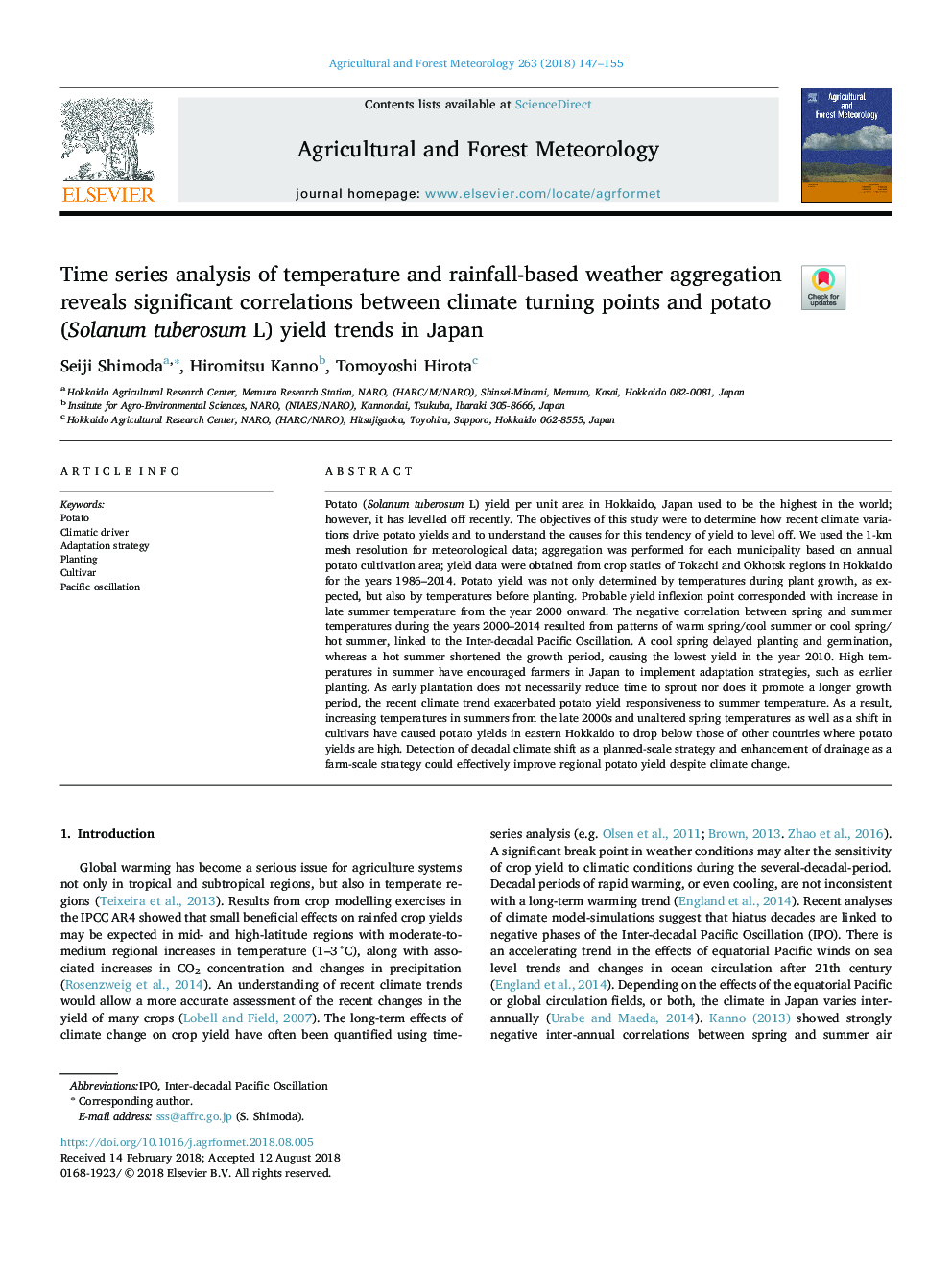| کد مقاله | کد نشریه | سال انتشار | مقاله انگلیسی | نسخه تمام متن |
|---|---|---|---|---|
| 9951663 | 1420842 | 2018 | 9 صفحه PDF | دانلود رایگان |
عنوان انگلیسی مقاله ISI
Time series analysis of temperature and rainfall-based weather aggregation reveals significant correlations between climate turning points and potato (Solanum tuberosum L) yield trends in Japan
دانلود مقاله + سفارش ترجمه
دانلود مقاله ISI انگلیسی
رایگان برای ایرانیان
کلمات کلیدی
موضوعات مرتبط
مهندسی و علوم پایه
علوم زمین و سیارات
علم هواشناسی
پیش نمایش صفحه اول مقاله

چکیده انگلیسی
Potato (Solanum tuberosum L) yield per unit area in Hokkaido, Japan used to be the highest in the world; however, it has levelled off recently. The objectives of this study were to determine how recent climate variations drive potato yields and to understand the causes for this tendency of yield to level off. We used the 1-km mesh resolution for meteorological data; aggregation was performed for each municipality based on annual potato cultivation area; yield data were obtained from crop statics of Tokachi and Okhotsk regions in Hokkaido for the years 1986-2014. Potato yield was not only determined by temperatures during plant growth, as expected, but also by temperatures before planting. Probable yield inflexion point corresponded with increase in late summer temperature from the year 2000 onward. The negative correlation between spring and summer temperatures during the years 2000-2014 resulted from patterns of warm spring/cool summer or cool spring/hot summer, linked to the Inter-decadal Pacific Oscillation. A cool spring delayed planting and germination, whereas a hot summer shortened the growth period, causing the lowest yield in the year 2010. High temperatures in summer have encouraged farmers in Japan to implement adaptation strategies, such as earlier planting. As early plantation does not necessarily reduce time to sprout nor does it promote a longer growth period, the recent climate trend exacerbated potato yield responsiveness to summer temperature. As a result, increasing temperatures in summers from the late 2000s and unaltered spring temperatures as well as a shift in cultivars have caused potato yields in eastern Hokkaido to drop below those of other countries where potato yields are high. Detection of decadal climate shift as a planned-scale strategy and enhancement of drainage as a farm-scale strategy could effectively improve regional potato yield despite climate change.
ناشر
Database: Elsevier - ScienceDirect (ساینس دایرکت)
Journal: Agricultural and Forest Meteorology - Volume 263, 15 December 2018, Pages 147-155
Journal: Agricultural and Forest Meteorology - Volume 263, 15 December 2018, Pages 147-155
نویسندگان
Seiji Shimoda, Hiromitsu Kanno, Tomoyoshi Hirota,